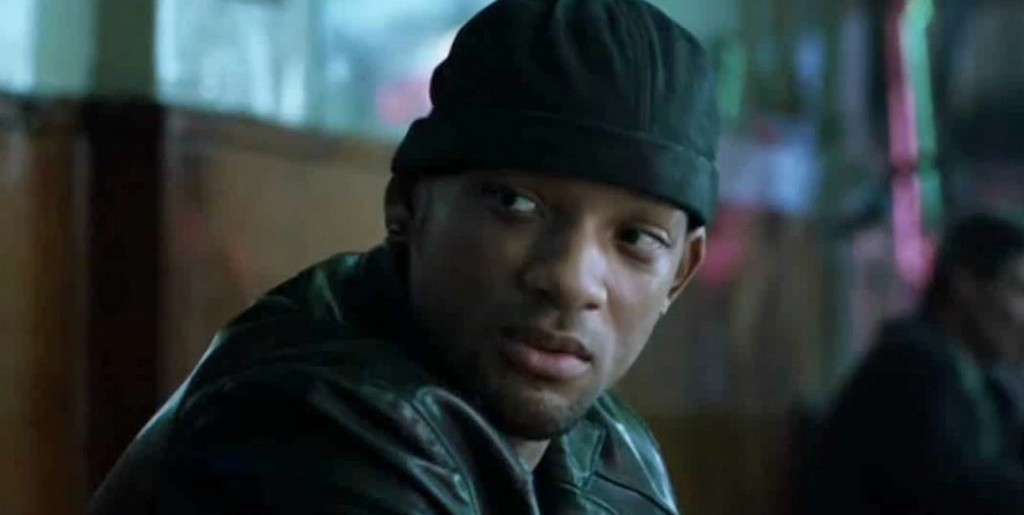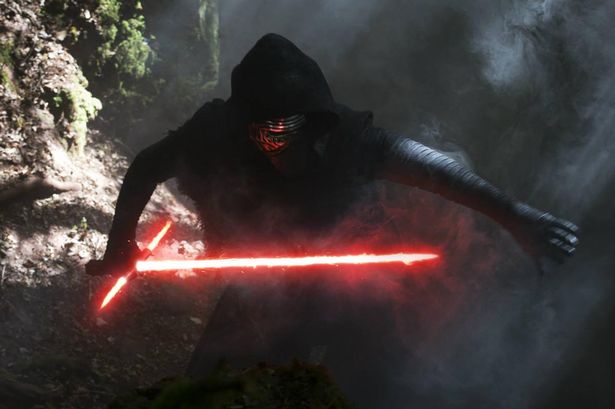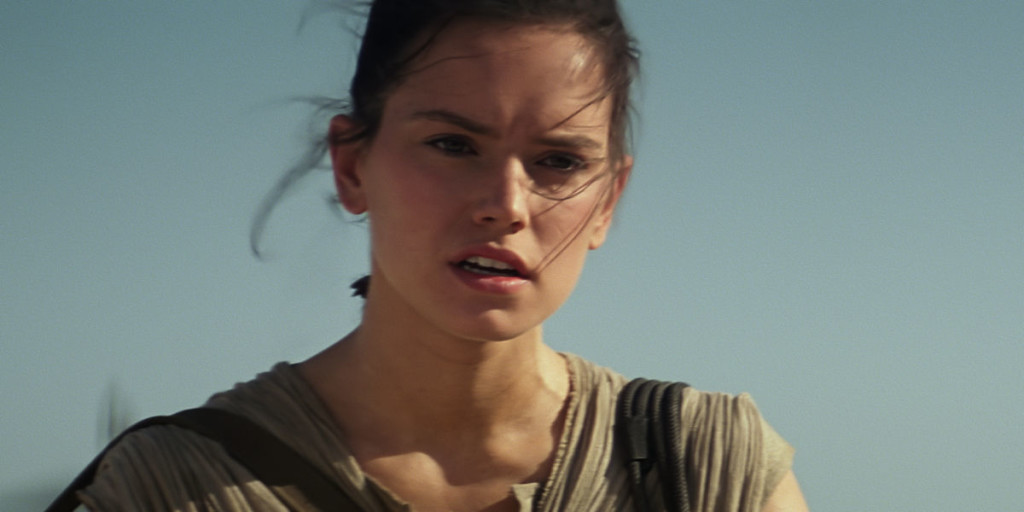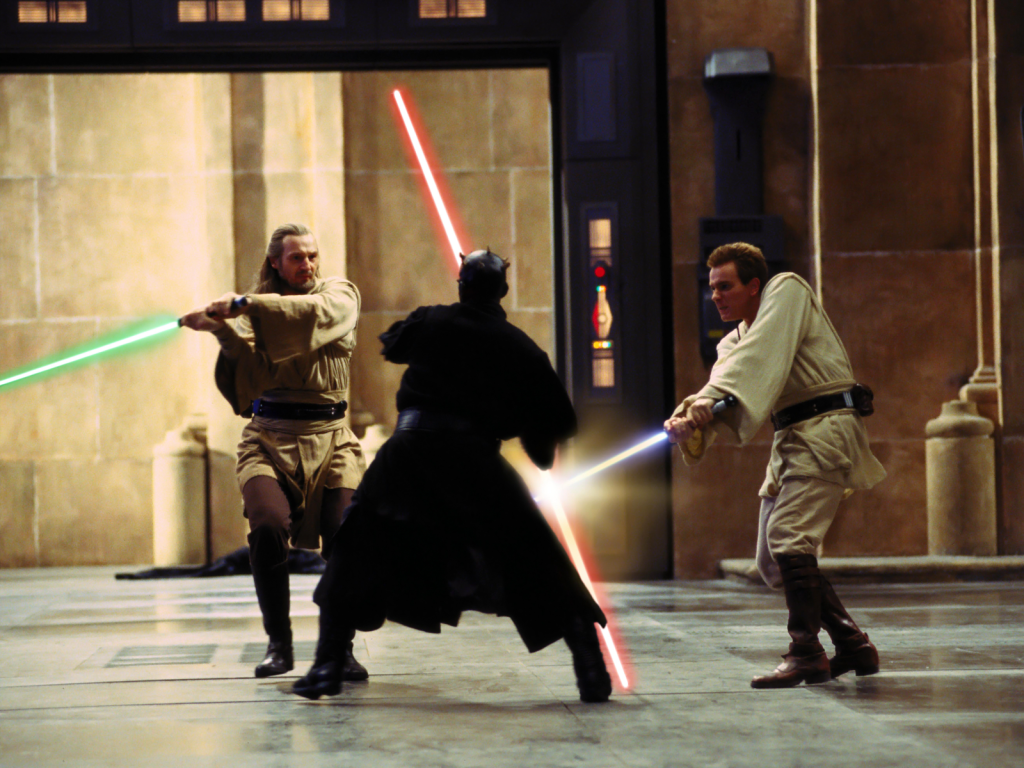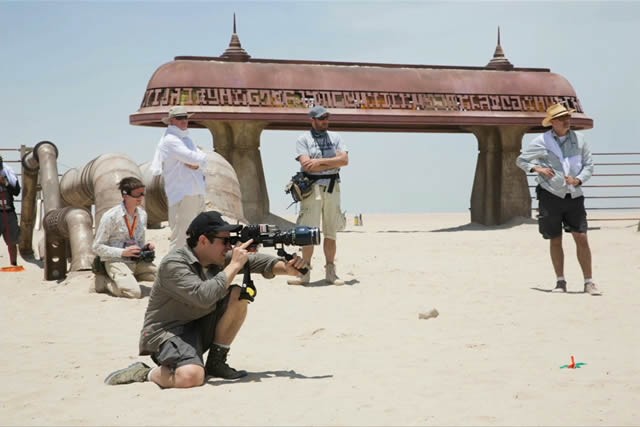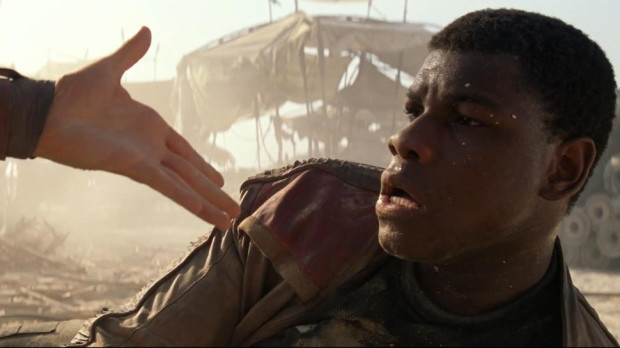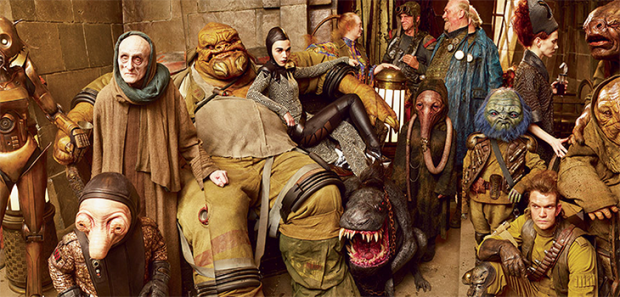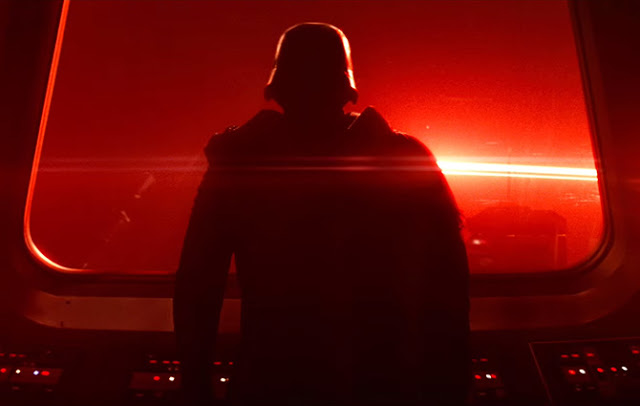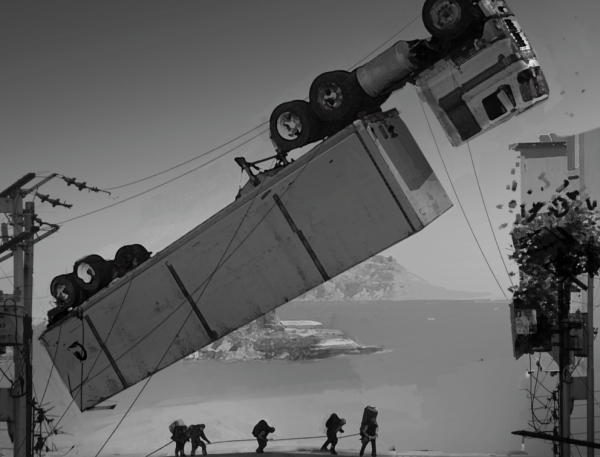Search Results for: mena
We’re going to get away from loglines for a day. Well, not really, since you’ll choose to read the below scripts based on their loglines. I suppose it’s another reminder of how important they are. There continues to be a contingent of people who say loglines are dumb, yet those same people will read through today’s logs and know instantly whether they want to read the script or not. As frustrating as these little buggers are, they matter!
If you’re new to Amateur Offerings and want a shot at getting your script reviewed, e-mail carsonreeves3@gmail.com with your title, genre, logline, and why you think your script deserves a shot. Don’t forget to include a PDF of your script. As for your job today, read as much as you can from each script and cast your winning vote in the comments section (leave a comment with your pick). Good luck to all!
Title: Eternal Lies
Genre: Psychological Horror/Thriller
Premise: When ancient relics wash ashore in the south pacific, a team of scientists set sail to investigate. The closer they draw to their origin, the further they flail from reality. (A Modern day take on The Call of Cthulhu. The Shining on a boat).
Why You Should Read: H.P. Lovecraft is one of horrors most beloved writers. Unfortunately for screenwriters, his works have proven very difficult to adapt successfully. I believe the reasons are threefold. One, his works rely heavily on internal dialogue. Two, the entire story is set up for one terrifying punchline. Three, his stories are never updated! We see the same period piece over, and over again. What would happen if we set Cthulhu in the modern world? Modern technology? Modern characters? Eternal Lies is my pet project. One that I feel has a chance at cracking the code of Lovercraft. I yield to the SS communities infinite knowledge.
Title: Sickness and Health
Genre: Comedy
Logline: A middle aged playboy hires a woman to marry him so his dying father can realize his dream of seeing him walk down the aisle. When the father then starts to show signs of a miracle recovery, the couple is forced to prolong the charade.
Why you should read: I was a Nicholl semi-finalist in 2014 (like Scriptshadow favorite “The Water Man” by Emma Needell from last year’s BL), and that script’s now being optioned, so hopefully I’m getting closer to figuring out what I’m doing here.
Title: Pandora’s Box
Genre: Supernatural horror
Logline: After the tragic death of their five year old son Ryan, the Taylor family begin to experience
paranormal phenomena. In a desperate attempt to contact their son, the family turn to a Voodoo
witch, who is cursed with the gift, to see the dead.
Why you should read: Do you love rainbows? Cute and cuddly care bears? Unicorns? Rose smelling farts? If so, this is NOT a script for you. I repeat, this is NOT a script for you. I eat cute and cuddly bears and shit out unicorns for breakfast. This is a script that will make your legs quiver (like a dog taking a shit), this is a script that will make The Sixth Sense look like a romance movie (That’s just trash talk, The Sixth Sense is one of my all time favorite movies). If, like me, you love suspenseful horror, and you love to shit your pants (like a crying baby) then maybe… Just maybe, this is a script for you. A low budget horror, in the genre of The haunting (1991), Insidious, The Conjuring, and The Shining, “designed to jack you up”. I hope you enjoy guys, and thank you for taking the time to read Pandora’s Box, co-written with my sister, (yes, we need MORE female writers)!
Title: North Of Fear – South Of Pain
Genre: Survival Thriller
Logline: A Tense survival thriller centered on a widowed mother whose confidence is tested when she and her children are stalked by an aggressive grizzly bear in the wilderness of Yellowstone.
Why you should read: When was the last time you bit your nails to stubs reading about a hopeless mother with two kids being trapped in a terrifying nature-gone-rogue situation?
Title: Patria
Logline: In colonial Argentina the bastard son of a widowed peasant woman rallies a band of freewheeling gauchos against a ruthless invader queen.
Genre: Action/Adventure
Why you should read: I’d like to find out if inducing torture on myself for the last six months by trying to finish this story translates into anything worth reading. Or is effortless writing the tell tale sign of a great script? All I know is this was a story that wouldn’t let go of me as much as I wanted to give up on it at certain points. (Funny how that works) It is a culmination of all the personal betrayals, goals, angst, and general disposition towards life (to name a few) that I have experienced in my short 27 years so far. If that isn’t reason enough to find out what that’s about. What makes a man tick. Then I’m not sure what else I can give. I put everything I could into this script and it’s something I’m really proud of for doing. Of course that’s not to say that it’s without fault or immune to criticism. I just hope it’s not as painful for you to read as it was for me to finish. My mom hasn’t read it yet so the verdict is still out ;) Onto the next one. -Godspeed
Genre: Thriller
Premise: After a murderer escapes prison, the sister of the man he was convicted of killing puts a 10 million dollar bounty on his head.
About: This script sold a couple of years ago after it got Will Smith attached. Writer Sascha Penn has been slowly moving up the ranks in Hollywood. He’s written a couple of TV shows, most notably, “The Secret Lives of Husbands and Wives,” and I’ve spotted a few feature specs by him before. But this is obviously his big breakthrough, getting Will Smith attached. Smith is looking for that starring vehicle that’s going to put him back on top. And taking a “Fugitive” type roll might be just the trick to do it.
Writer: Sascha Penn
Details: 110 pages – undated
We just talked about this yesterday. There are certain premises that sound great on paper, but once you start writing them, they’re a lot more complicated than you thought. It’s like ordering spaghetti. You know it’ll taste good. But then you get the plate and the next 45 minutes are a war between you, the noodles, the fork, and your dexterity level. It sucks because you’ve finally come up with that head-turning six-figure idea. Only to realize you’ve been dropped into a literary minefield.
Bounty is a near-perfect logline. However, its cracks start to show less than 20 pages in. Once the premise is established, the questions begin. Like if a woman offers 10 million dollars to whoever kills a man, how would that person ever actually receive that money? Publicly offering money for a murder is illegal. And indeed, when the sister character offers it, she immediately goes to jail.
So let’s say you still kill the guy. Where do you bring him to get the money? I’m pretty sure those “cash for paychecks” places don’t accept corpses. But let’s say you somehow avoid this issue. How does this money get transferred into your account without the police tracking it? I mean, you’re a public figure now, easy to keep tabs on. And receiving money for a murder is illegal right?
It’s too bad that Bounty faces all these questions, because it really is a fun concept.
We meet our hero, Abel Ford, in prison. He’s been here for 10 years for the murder of a big shot one-percenter. The thing is, Ford didn’t kill him. Well, according to Ford at least. He’s so determined to prove his innocence that he’s been planning a prison break for the last few years so he can find the real killer and live happily ever after with his girlfriend and (now) 10 year-old son.
Ford does escape, but it doesn’t go as planned. The man he was convicted of killing has a weirdo sister named Vivian Standish who announces on national television that she’ll give 10 million dollars to anyone who brings Ford in dead or alive.
Imagine if 10,000 Dog the Bounty Hunters all descended upon Massachusetts looking to claim the payday of a lifetime. That’s exactly what happens, making Ford’s plan to find the real killer a teeeeeensy bit tougher.
Ford finds the one man he can trust, his half brother, and the two start driving around the city, asking sketchy criminals what they know about that infamous murder Ford supposedly committed. Bit by bit, a different picture emerges and Ford is able to piece together the truth. But will he be able to sell it to the media before he gets a bullet in his head?
As I’ve made clear, “Bounty” is a brilliantly conceived idea. Not just because of the idea itself, but because it embodies everything a saleable spec is supposed to be. It’s got a nifty high-concept premise. It starts fast and never lets up. And it features a 30s-40s male protagonist, which, because of the large marketable talent pool that exists in that acting demographic, makes it the quickest way to get a movie made. This harkens back to the formula that made specs so big in the 90s.
Also, thrillers are the easiest screenplays to write. The structure is built into the premise (a main character with a strong goal that he must achieve quickly) which allows most of the movie to write itself. If I were an aspiring screenwriter just starting out, this is the genre I’d write in. It’s by far the easiest to pick up.
There are couple of other teachable moments here as well. Penn realizes that a man on the run without an emotional connection is boring. We won’t care. That’s one reason The Fugitive did so well. We felt the love Richard Kimble had for his dead wife. So Penn wisely writes in a scene after the prison break where Ford goes to his old girlfriend, who he has a 10 year old son with, to show us what he’s fighting for.
I call these EMOTIONAL STAKES. There has to be something emotional on the line for your hero.
Penn also makes this bigger than your run-of-the-mill thriller by exploring an issue – gun violence in America. This movie is about a country riddled with a gun problem that’s only getting worse. At one point late in the story, multiple misidentified Abel Fords are getting shot. Everyone has gone gun crazy! If you can come up with a great premise that ALSO hits on a controversial social issue? You’re gonna have a lot of people asking to read your screenplay.
The problem with Bounty is it never overcomes the suspension of disbelief required to buy into the story. I kept asking questions that the script couldn’t answer. Namely: How would anybody be able to collect this money? Everything Vivian was doing was illegal.
Penn tries his best to distract us from this reality. For example, he focuses on how the bounty doesn’t just cover death. They can also bring Abel in alive as well. However, the draw here is the kill. That’s why this premise is so exciting. If it was just, “Bring him in alive and you get 10 million,” the logline doesn’t work. So it’s kind of a cheat.
Also, Penn tries to convince us that anyone who kills Abel is going to get off scott-free because no jury in America will convict him. I’m not so sure about that. The bounty hunters wouldn’t be killing some evil menace to society serial killer. They’re killing a dude who shot a rich guy. I’m thinking there are plenty of juries who’d have no problem convicting a greedy bounty hunter over that.
Finally, I thought Penn missed some opportunities. The promise of the premise here is bounty hunters coming after Abel! So I wanted to see various weird bad-ass bounty hunter personalities. Imagine how much fun you could have with that? Real life versions of Boba Fett using unique skill-sets to hunt down Ford. But the treatment of the bounty hunters is more scattershot, told more through Ford’s perspective than their own. So we never get to establish any of these potential actor-bait roles (think about it – this could be the modern day Con Air, with all these big actors coming in to play weird cool bounty hunters).
I’m torn because I love this idea and I think the script sets up a great story. It doesn’t deliver though.
[ ] what the hell did I just read?
[x] wasn’t for me
[ ] worth the read
[ ] impressive
[ ] genius
What I learned: Send your character into the belly of the beast, the place they least want to go. A great way to ENSURE a good scene is to ask yourself, “Where does my character least want to go?” And then send them there. Early in the script, Ford needs to get information from a criminal to further his investigation. Guess where that criminal is? Prison. THE PRISON HE JUST BROKE OUT OF. So Ford has to go right back to the prison he just broke out of (in disguise, of course), to chat with the man who can help him out. These scenes work almost every time.
What I learned 2: If you find yourself trying to distract your reader from large plot holes in your script, you know you’re in trouble. Instead of creating distractions, go back and fill in the hole.
I loved The Force Awakens.
Review over.
Bye.
YODA SAYS: “SPOILERS THERE ARE, BELOW.”
No, I’m kidding. To be honest, I expected to be critical of this latest installment of wars that happen in stars. The Hollywood moviemaking system can easily be described as the Hollywood capture-lightning-in-a-bottle system, as that’s essentially what you’re trying to do. Make 300-400 variables all come together and work in your favor over a 1-2 year period. So when Star Wars was not only able to achieve this once, but TWICE (with Empire), it was pretty much guaranteed that the franchise would never accomplish that feat again.
And it didn’t. Jedi was good. But it wasn’t great. And the prequels. Oh… the prequels. You could say that those movies were the universe’s way of balancing shit back out. “You made the best movies in history? Well, we can’t keep allowing THAT to happen. We must restore balance.” And so we got the three worst films in history.
This leads us to The Force Awakens. Am I saying JJ Abrams contacted the spirit of Ben Franklin and somehow managed to bottle lightning one more time? I’ve broken down so many movies and so many scripts at this point, I’m beyond the ability to judge a film purely on the kind of emotional impact required to answer that question. But you know what? The Force Awakens came squiddly-diddly close.
Before I get into the bantha meat of my review, let me reiterate that a screenplay is the sum of its parts. For those of you curmudgeons who will bring back a point I made in Scriptshadow Article #317.b about if there’s a thin character in your script, it means you need to fix it immediately, and that The Force Awakens’ Captain Phasma is a thin character and therefore I must denounce all that is Star Wars past, present, and future and count Force Awakens as one of the worst movies ever because “Youuuuu saaiiid Carson…” I’m not going to do that.
Screenplays are the sum of their parts. Therefore, if you like the majority of those parts, even if the rest of the parts are subpar, guess what? It’s okay to still like that movie. Cause the truth is, there is no perfect screenplay. You can take the original Star Wars to task if you want to. The hero is introduced too late! Oh no. I guess Star Wars sucks now.
Nope. Not how screenplays work.
I’ll tell you how they do work though, and a large majority of it comes back to your main character. If you can nail the main character, nearly every other mistake you make in your screenplay can be overlooked. Because if we love the main character, we’ll want to go anywhere with them. And I loved Rey. This is where JJ really brought the heavy metal. He knew that if he could give us the perfect hero, he could make other mistakes and we’d look past them. So how did he pull this love affair with Rey off? He went old school Scriptshadow, that’s how! Let’s take a look atneverything he did with Rey…
1) Underdog – Rey is an underdog character. She’s a nobody. She’s barely surviving. Everyone looks past her. Audiences FUCKING LOVE UNDERDOGS! When are you all going to learn??? It’s instant likability sauce drip drip dripping on your hero.
2) Deserted by parents – We will always sympathize with someone who’s been left by someone they loved. Rey was fucking ABANDONED BY HER OWN PARENTS. Jesus Christ do we want to see this girl find happiness now.
3) She pushes on despite her misfortunes – Ever meet someone where life has beat them down and they throw up their arms and say, “Well, fuck it. Might as well do drugs and play video games all day?” Not exactly the kind of person you want to root for, right? On the flipside, we LOVE characters who’ve been dealt a terrible hand and yet they KEEP. ON. FIGHTING. This is one of our favorite types of characters and the key to us loving Rey.
4) She’s active – We LOVE active characters. Characters who are out there doing things. Rey spends all day every day scrapping. How can you not admire this?
5) Puts others’ safety/happiness in front of her own. – A droid is about to get kidnapped for parts? Rey is right there to stop it! Girl is being selfless for the well-being of something that’s not even human!
6) Is taken advantage of – We LOVE characters who are taken advantage of because we don’t like it when people are unfairly wronged. We root for the person wronged to rise up and make it right. The scraps dealer Rey sells to every day JUST TO EAT is constantly giving her less and less money for the parts she spends all day scrapping. After every one of these scenes, we root for Rey even more.
Anybody who claims JJ Abrams is a bad screenwriter (and I’ve seen a few dare to do so) don’t realize that this is what he brings to the table. He makes sure his main character is great so that we will care what happens to them. And since in most cases, the main character IS the movie, he knows that if you like his main character you’ll like his movie. This guy doesn’t just depend on mystery boxes, as some internet trolls will have you believe. He’s a well-rounded screenwriter who’s been selling scripts since he was 23 years old. The boy has skills.
Once you have your hero, your ying, you have to create your villain, your yang. And holy shit did I love JJ’s yang. Err, I mean Kylo Ren. Was he as brilliantly conceived as Rey? No. But here’s what Kylo Ren was. HE WAS INTERSTING. As co-writer Lawrence Kasdan put it, there’s no other character like him in the Star Wars universe. And I agree. Villains are probably the hardest characters to write because if you go over the top, they come off as on-the-nose. But if you’re too subtle, they’re not scary enough. You have to strike that balance, and that’s never easy.
What I loved about Kylo most was how UNPREDICTABLE he was. This is an underrated trait of villains that screenwriters should take more advantage of. The guy could go ape-shit in a heartbeat, but he’s also involved in two of the quietest moments in the film. He practically whispers when he takes off his mask needing information from the captured Rey, and also when he’s out talking to Han on the bridge (which might be my favorite scene in the movie). To me, the scariest people are the people for whom you don’t know what’s coming next. Is it compassion, is it rage, is it introspection, anger, curiosity, fear. Kylo Ren displays all of these things, which is why I loved him so much. I mean compare that to say, Darth Maul, who conveyed what? Anger? I think that’s it, right? Actually, looking back on it, I don’t think he conveyed any emotion outside of snarling. Is snaring an emotion?
Next we have the plot itself. One of the complaints coming out of the reviews is that the story moved “too fast.” This actually made me laugh. A story that moves too fast? Oh no! How awful! Let’s see. How many times in history have you complained that a movie moved too fast? Once? Maybe twice? The notoriously common reaction to a movie is that it MOVES TOO SLOW. That’s because it’s really fucking hard to keep things moving in a movie. For Abrams to not have this problem? It’s kind of a miracle.
But it also goes back to the fact that this guy is a great screenwriter and a great storyteller. Keeping a plot moving, as you know from this site, is really hard. But you do it in a few ways. You make sure your lead characters always have goals. You make sure your SECONDARY CHARACTERS always have goals. So if your main characters hit a slower section, we’re still wondering, “Oh shit, well what is Han up to now? He still has to achieve [x]!” You make sure your VILLAIN is always driven by goals. This way, everybody we cut to HAS SOMETHING TO DO RIGHT NOW.
Bad screenwriters either don’t always include goals, or when their characters complete a goal, they don’t replace it with a new one. Certain goals don’t have high stakes, so we don’t care whether they’re completed or not. There may not be any urgency attached to the goal, so it’s not imperative that the goal get taken care of right away, which results in a slowing down of the plot. A good screenwriter is always checking in on all the characters at all times and making sure they have something to do. And that’s the reason this screenplay moves so fast, is because JJ and Kasdan made this a priority.
Would I have liked a little more time with Rey at the beginning? Of course. I think that would’ve made me like her even more (if that’s possible). You can even see in the trailers that a lot was cut from her planet. We get shots (her scrapping) and lines (“Who are you?” “I’m no one.”) that JJ decided to snip to keep the pace going. The thing is, this is every writer and director’s biggest fear – is their story moving too slow. So they’re always cutting, always only including what’s needed and nothing more. JJ might’ve been the first director in ten years who cut 10% more than he needed to. His movie was so good, it could’ve survived an added ten minutes.
Before my praise-lavishing comes to an end, I’m going to explain to you why JJ Abrams now understands Star Wars better than the man who created it. One of the only praises people had for The Phantom Menace was the lightsaber battles, particularly Obi-Wan and Qui-Gon vs. Darth Maul. But you know what those people were really saying? “This movie is so bad, that I need to hang my hat on something, anything, so that I can’t call this Star Wars movie a failure.” And boy were those lightsaber battles a doozy. Right? Right?
Indeed, they were fun to look at if you’re a fight choreography dork who melts at the mention of Iko Uwais and spends 364 days a year prepping for Choreo-Con. But if you were looking for emotion? For meaning in those fights? You found nothing. You found nothing because who the fuck was Darth Maul? As I pointed out above, he had no emotional component whatsoever. He was a snarl. And who was Qui-Gon? A nice Jedi? That’s the emotional complexity George Lucas had devolved to? Nice vs. Snarl? And don’t get me started on the borrible Obi-Wan. The point is that no matter how many flips they did or times they cut each other in half, it left us with no feeling whatsoever.
I’m going to say something pretty controversial here. The lightsaber battles in The Force Awakens… they kinda sucked. Kylo Ren just kept doing the same clumsy overhead strike again and again. Rey had some kinda cool moves. But overall, the lightsaber battles were weak. And you know what? It was still ONE FUCKING THOUSAND TIMES BETTER than that Qui-Gon Obi-Wan Darth Maul battle. Because Kylo was in one of his complex rages. And Rey was struggling with this newfound ability. But most importantly, I LIKED REY and I WAS FASCINATED BY KYLO. Each character was acdtually compelling. And interesting. And had something on the line other than hitting their marks. That meant I ACTUALLY CARED WHAT HAPPENED BETWEEN THEM. They could’ve thumb-wrestled and I still would’ve been riveted. And if there’s a lesson to lesson here, it would be that. Focus on the people, not the fights. You do that and the fights will take care of themselves.
Okay, now that I’m finished regurgitating the awesomeness I gorged on, it’s time to point out some of the film’s faults, although I’ll contend these issues were at least partly due to big bad Disney. To come up with something truly original, you need time and LOTS OF DRAFTS. You need to write through the obvious to get to the unobvious. And Disney didn’t give JJ any time. So yeah, I’m still defending JJ.
The first gripe is that, yes, the plot feels similar to the original Star Wars. Lone person on desert planet, droids with important plans, giant battle stations. Here’s the thing though. It didn’t feel SO similar that it ruined my enjoyment of the film. The things that anchored the story (a female protag, a storm trooper gone rogue, a search for Skywalker) were different enough that while I felt the parallels to A New Hope, I never felt like it was a beat for beat copy.
But here’s where I did have a problem. The one thing Lucas brings to the table that JJ doesn’t is imagination. JJ basically used pieces that were already there. Lucas CREATED ALL THOSE PIECES. I read an interview with Lucas a long time ago and in it he was asked how he came up with Jabba the Hut or some other weird character. And he said, “Honestly, some of this stuff is just whimsy. I like the thought of it.”
And JJ’s not like that. He’s a storyteller and when you tell a lot of stories, it gets drilled into your head that everything needs to make sense. Everything needs to be logical. The reason Star Wars is what it is is because it isn’t always logical. It doesn’t make logical sense to have a giant slug who couldn’t escape a determined alien amputee be the most feared gangster in the galaxy.
And the thing that made Lucas Lucas is that he didn’t care. He just liked the idea of a giant slug gangster. JJ doesn’t have that talent. He’s scared to go into the depths of his imagination and come up with something truly weird because those are the things that are the least easy to calculate. JJ knows that having someone take advantage of Rey early on will result in a calculable emotional reaction from the audience. But he doesn’t know what will happen if he makes Finn a no-headed Quaseldorf from the planet Yim-Yam. So he makes him a stormtrooper instead.
Speaking of Finn, he didn’t work AT ALL. And it didn’t help that John Boyega’s acting amounted to, “Holy shit, I’m in Star Wars! Holy shit, I’m in Star Wars!” But here’s why Finn doesn’t work. JJ and Kasdan had the right idea. You take a bad guy and you place him inside the gang of good guys. It’s good old fashioned dramatic irony. We know Finn is bad, but nobody else does. Oh no, what’s going to happen!?
Well what happens is that JJ and Kasdan never fully commit to the conceit. Yes, we have someone from the First Order inside the Resistance. BUT WHAT ARE THE STAKES???? If they find out Finn is a stormtrooper, what’s going to happen to him? I’ll tell you what. ABSOLUTELY NOTHING. Not only is Finn fully committed to the Resistance now and therefore not a threat, JJ has so little confidence in the storyline that he actually starts letting everybody know Finn’s secret! BB-8 knows. Han Solo knows (“Sooner or later, women find out the truth.”). If this secret matters at all, how come it’s freely shared and no one seems bothered by it?
I think what happened was that they realized at a certain point, “Uh, this isn’t working. There are no stakes if he’s figured out. What next?” And so they kind of transferred the stakes over to Rey. If Rey found out Finn was part of the First Order, she wouldn’t like him anymore. So ruining a potential romance is now the consequence of Finn’s big secret. Except JJ and Kasdan never make it clear if there is a romance, so again, the stakes aren’t very high.
Yesterday, I highlighted a movie to watch for this specific purpose. In it, Lawrence Fishburne plays a cop who must go undercover into a gang of drug dealers in order to take them down. THAT’S how you do Finn’s storyline right. We knew that if at ANY MINUTE, they figured out Fishburne was a cop, HE WAS DEAD. So there was tension in every moment and the writers could play with that. They could build scenes around the fact that Fishburne’s identity was in jeopardy (make him have to kill someone to prove his loyalty). We never sensed anything close to that with Finn.
It’s a little upsetting that this was the one big deviation in plot from Star Wars and JJ got it wrong. It shows that without that blueprint, he was flying blind. I have no doubt he would’ve figured it out with more drafts but they just didn’t give him the time. Moving forward, Finn is my one big worry for the franchise. He doesn’t seem to fit. He doesn’t seem to have an intriguing arc, unless he’s secretly a jedi, which wouldn’t make sense. This half-realized idea would’ve been best left at the alter, replaced with the incredibly charismatic and underused Poe Dameron. Who knows? Maybe Rian Johnson will figure something out with him.
NERDY DISCUSSION POINTS 3000!
It’s time to throw screenwriting theory out the window and go full nerd. When you go full nerd, you do not need facts. Just a strong opinion and a lot of pent-up self-hatred, and to that end, I will address some nerdy discussion points of Force Awakens.
How can Rey use the force if she’s never trained?
I think it goes back to what I said earlier. If you can make us believe in a character, you can make us believe in anything they do. I liked Rey so much I believed she had a strong sense of the force. But here’s where it gets interesting. A part of me thinks that Luke was channeling the force THROUGH REY. That’s why she seemed half-confused whenever she was using it. The big clue to this is when she’s in the chair and knows to tell the stormtrooper to let her go. That’s a specific callback to Luke watching Obi-Wan say the same thing in the original Star Wars. I think Luke has gotten so powerful – more powerful than any jedi in the history of the galaxy – that he’s learned how to speak and control people throughout the galaxy, specifically those who also have the force and who, in this case, might be his daughter.
Then there’s Snoke. Who is Snoke? Why is he 80 feet tall and has a weird crevice in his head? Snoke is derided in the reviews as one of the weaker additions to the franchise and I’d agree with that. FOR NOW. Because I think there’s more going on here. The shots of him in the cave with the projection seem to be a specific reference to The Wizard of Oz. This might be Snoke’s projection, but it very well might not be anything like who the real Snoke is. The real Snoke could look completely different. I’m guessing even a tiny creature, a callback to Yoda. Might we finally get the true GOOD phantom menace story we were all hoping for? Either way, there’s more to Snoke than meets the eye.
You know what? I realize that if left to my own devices, this review could go on for ages and you know what? I want to go see The Force Awakens again. So I’ll stop here. And just say, yeah, this movie was freaking awesome. Big props to JJ and Kasdan for doing an amazing job, especially in the amount of time they had!
[ ] what the hell did I just read?
[ ] wasn’t for me
[ ] worth the read
[xx] impressive
[ ] genius
What I learned: You should be able to go to any point in your screenplay, look at your relevant characters in that moment, and see that they’re trying to achieve something (a goal) RIGHT NOW. If they’re not trying to achieve anything, rewrite it so they are. Because if too many of your characters are inactive at the same time, your script will drag. That’s when you’ll hear readers say things like, “Nothing seemed to be happening.” The Force Awakens is one of the best examples this decade of a movie where everyone in the story has something to do whenever we cut to them. It’s a great study companion to see how to keep a plot moving.
Reviews are coming in. Here are some spoiler-free ones:
Slash-Film (positive).
AICN-Quint (positive though feels like he’s holding back).
AICN-Nordling (slightly positive to kind of negative).
What worries me is that the reviews have that “Prequel Reviews” feel to them. Remember those? “Oh, it was amazing. But there were a few problems here and there. But it was amazing!” Like, “I’m trying to convince myself” here.
But anyway, here’s my question. You’re Disney. You hold the world premiere of one of your biggest movies ever on a Monday. You then tell everyone who saw the movie that they’re not allowed to review the film until 12:01 AM on Wednesday (so effectively 9 am Wednesday, since that’s when the normal world will wake up and read the reviews). With showtimes beginning, I believe, Thursday at noon, this gives reviewers barely more than 24 hours to get their thoughts out to the general public before the public sees it.
Does that sound strange to anyone but me? Doesn’t it feel a bit like they don’t have a lot of confidence in the film? I mean why not just let people review it after they come out of the theater on Monday?? It seems so strange. I’d understand it if they screened the movie three weeks ago. But this is the same week it comes out.
Regardless of whether any of that is relevant, The Force Awakens’ fate will lie with something the general audience isn’t even aware of – the fact that its screenplay was rushed. I understand that corporations want their money now, but it’s so dangerous to rush anything that you want to be good. Especially when you consider that most movies which are terrible (Transformers) had trouble achieving even a mediocre screenplay with FIVE TIMES the amount of time Abrams and Kasdan had to write this.
The thing that suffers the most when you rush a screenplay is plot. It’s easy to come up with the grand sweeping centerpieces of your story. But it takes a hell of a lot of time to connect them all in a natural, convincing, invisible way. So what’s the common critique I keep hearing out of all the Force Awakens reviews? “Contrived plotting.” “Lots of coincidences.” “Things feel left out.” “Things don’t always come together naturally.”
I know, I know. I haven’t seen the movie yet. But this is exactly what I was terrified of when I heard how quickly they were writing the script. Good scripts always take time. Especially scripts that have a lot of moving parts (lots of characters, jump around a lot). You may be able to write something quickly that involves three guys in a barn (Untitled Contained Barn Movie – coming to a theater near you). But 50 guys, gals, and aliens spanning a couple of dozen planets and starships??? No, you’re going to need fucking time for that. And to think that Disney originally wanted to release this in MAY! What were thinking under that timeline? 5 days for the script? 5 and a half?
I’m seeing the movie Thursday night and I guess in a way, I’m glad I heard about these issues ahead of time. I went into The Phantom Menace with huge expectations and got boned. Maybe the cautious route will result in a more satisfying experience. Let’s hope. And may The Force be with us all.
p.s. I’m still reading and reviewing Scriptshadow 250 scripts for 2 weeks over on my Twitter. You can go there to get tips and updates. Also, you can go through the archives by searching for the tag #ss250!
A big new juicy sci-fi spec about gravity-loss just sold a couple of weeks ago. I’ll try to keep my feet firmly on the ground as I review it.
Genre: Science-Fiction
Premise: A gravitational anomaly has sucked four-fifths of the world’s population into the atmosphere. A small team of scientists must travel across San Francisco during the phenomena to find the cure before it’s too late.
About: Visionary filmmaker, Matthew Vaughn (Kick-Ass, Kingsman), is taking a rare step into NON-IP fare. That’s right. A major Hollywood filmmaker is directing a SPEC SCREENPLAY. This should give your little screenplay typing fingers some goosebumps cause it means that the SPEC IS BACK, BABY! Okay, maybe I’m hyperbolizing. But it’s still pretty cool. Screenwriter Shannon Triplett sold the script to Fox for mid-six against seven figures. While he worked in some small assistant capacity on Gareth Edwards’ Godzilla, and has done some special effects for movies such as “Journey 2: The Mysterious Island,” this is his first breakthrough on the screenwriting front. Triplett looks to have used some of those effects skills to market his script, including some concept art, which you can find in the screenplay.
Writer: Shannon Triplett
Details: 115 pages
I know a lot of you screenwriting purists hate the idea of concept art in screenplays, but the way I look at it is that there are so many reasons to say no to a project – Like the fact that this movie will cost 120 million dollars and isn’t based on any IP – you need ways to turn the head-shake into the head-nod. One way is to actually show them imagery from your movie.
Now it’s gotta be professional. And I’m going to make a sweeping statement here that’ll be harsh but hopefully save you from embarrassment in the future. Unless you get paid as an artist, DO NOT try to create your imagery yourself. Even if it’s pretty decent, it will look 19 levels worse than the concept art the average studio exec is used to looking at. So it’s just not a good idea. Trust me. I know you’re talented. But you’re not as good as the guy who does it 9 hours a day 360 days a year.
If you’re going to include concept art, you’re going to have to pay some money to get professional work done. Paying money to write a script may sound counterintuitive. But what you have to remember is it’s an investment. You’re investing in something that IMPROVES your chances of selling your script.
It’s up to you whether you think the investment is worth the potential payoff, but if you’re writing some grand scale summer flick that’s never been done before, it might be helpful for the reader to see a visual example of what you’re going for. Who knows? The right image – something that perfectly encapsulates your movie – might be the thing that tips the script-sale-needle in your favor.
Liam West is a theoretical physicist. And no, I don’t know what that is either. But under these circumstances, that title is really important. You see, after two months of global gravity fluctuation, everything starts shooting up into the sky at once.
Liam is able to get to a military bunker with his wife and kids, but his wife isn’t able to make it inside, and is left out in the unpredictable elements of gravity-less San Francisco. Now that is not a San Francisco treat.
After a couple of months, Liam, a group of scientists, and a group of soldiers, decide to trek across San Francisco to Stanford, where an old colleague of Liam’s may be finishing up a cure for the gravity issue.
The group has to use spiked-shoes and mountain-climbing poles to stay attached to the earth, lest they float into the sky like a bundle of birthday balloons. As you might guess, this absurdly imperfect approach (I thought these guys were scientists!) results in a new phenomena known as “Scientists go bye-bye into sky-sky.”
Liam decides, mid-trek, that he wants to see if his wife is still earthbound. So the group detours, only to get attacked by a gravity surviving militia. They somehow escape these gravity bullies, and eventually make it to Stanford. But barely anything there still works, and Liam’s friend only has one risky experiment left to try. If that doesn’t pan out, everyone’s going to be spending their next vacation dodging 747s.
This is how you sell a script if you’re a beginner to intermediate screenwriter. You can tell Triplett is still learning the ropes here. Not enough big shit happens. There isn’t enough urgency. And while there are attempts to create character depth, those attempts are scattered and unfocused. I never had a sense of who Liam was or what his flaw was as a human being. This was even more evident with the supporting characters.
Okay, you say, Carson, so if I’m working my ass off for an entire year to give each of my characters emotionally captivating character arcs, why does his script sell and mine is sucking up viruses on my hard drive?
Quite simply, it’s the concept. This is a big idea concept that gives audiences something they’ve never seen before. And that’s a valuable commodity in the movie business because you just don’t see that kind of opportunity often when you’re buying screenplays.
A way to look at it is like this. Let’s say you’re a basketball GM. And you need to figure out who you’re drafting next. It’s come down to two guys. The first guy is 5’10”, scores 23 points a game, shoots 90% from the free-throw line, and is superb at dishing the ball. The second guy is 6’8”, scores 8 points a game, shoots 60% from the line, and is able to jump out of the gym when he dunks. Who do you choose?
It seems easy. The first guy is a much better all-around player, right? Okay, so what’s the hold-up? I’ll take the first guy. Ehhh, except there’s one problem. The other guy is 6’8”. And 90% of the time, the GM is going to pick the 6’8” guy because even though he’s not as good as 5’10” guy, he has a much higher ceiling. Hollywood sees screenplays the same way. Ascension is not as good as an amateur script I read just last week about a used-car salesman. But Ascension is 6’8”. It has way more upside.
And you have to remember: Hollywood can always hire somebody to beef up the character stuff. This is actually the number one reason you see a script sell for so much money and then a new writer gets hired. That always used to seem ridiculous to me (“You just paid all this money! Now you want to change it??”). But after reading all these script sales over the years, I’d think studios were crazy NOT to do this.
This is why guys like Scott Frank and Allan Loeb and Brian Helgeland make so much money. Because they’re the only ones who truly know how to go in there and add depth to the characters (which is why I told you last week that if you want to break into this business, learn character!).
Which brings us back to Ascension as a script. Was it any good? You know, it was all right. But it was also frustrating. I didn’t get the sense that Triplett really researched what this phenomena would be like. It seems like the planet had months to prepare before the actual gravity-strike hit. So why didn’t they fortify the underground city structures to house the general populace?
Why is it that the best travelling arrangement five of the smartest scientists in the world could come up with was wearing spiked boots? There was a lot of stuff that felt like it was thrown onto the page without much thought (another common thread with young screenwriters – they rarely challenge themselves to go deeper). After watching how far The Martian went to make sure all of its science was spot on, Ascension was stumbling around like it was wearing beer-goggles.
I also felt that not nearly enough obstacles were thrown at our characters. The worst they had to deal with was a steep cliff and a tiny local militia. We just talked about this the other day. If you want to get the most drama out of your idea, you need to hit your hero with “Holy shit how are they going to get out of this?” type obstacles. Not a few stray bullets from people who have never shot a gun before.
So yeah, I had some problems with the script. But I understand why it was purchased. Triplett made the wise decision to enter the draft with the 6’8” guy as opposed the 5’10” one. How tall is your concept?
[ ] what the hell did I just read?
[x] wasn’t for me
[ ] worth the read
[ ] impressive
[ ] genius
What I learned: Become an internet troll to make your script better! Internet trolls care about one thing and one thing only: tearing things down. While that can suck on the internet, it can actually be helpful when you’re writing a screenplay. After you’ve finished your script, put your internet troll hat on, and go through your screenplay with a troll’s mentality. The idea here is tear your script apart. You do this because the screenwriter side of you is too afraid to face the script’s problems. He’d rather live in ignorant bliss. Internet troll you? He’s relentless! And we need relentless. After the troll’s done, you’ll be able to fix all those weak nonsensical things you were ignoring. Had Triplett used his inner troll, he would’ve spotted a few curious problemos with Ascension.
1) Why aren’t there a lot more people still alive? It seems like all you’d have to do is stay in your home. When you needed to go out, you just wear spike-shoes like the scientists did.
2) If the world knew this was going to happen months ahead of time, why wasn’t a better infrastructure put in place to keep society going?
3) Why is all communication down? Again, they knew this was coming.
4) Why can’t people just live underground? Especially in San Francisco, which has a huge underground metro system.


